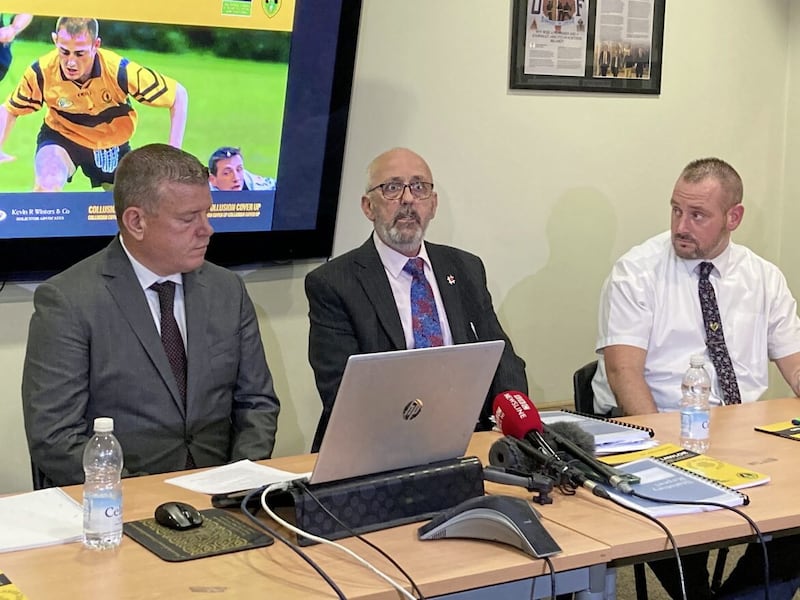It is impossible not to feel enormous sympathy for the family of Gerard Lawlor as they continue with their decades-long quest for justice in a system which has tragically let them down.
Mr Lawlor, a 19-year-old father of a baby son, was murdered by loyalist paramilitaries as he walked along Floral Road in north Belfast shortly after midnight on July 22 2002.
The talented Gaelic footballer had been out with his St Enda's GAC teammates and was returning home after a drink at the Bellevue Arms. It was a period of raised sectarian tensions and there had been five other gun attacks in the area in the preceding hours. Mr Lawlor was singled out by a Red Hand Defenders gang – a cover name for the UDA – for no other reason than the fact that they believed it likely he was a Catholic.
If the utterly random nature of Mr Lawlor's killing wasn’t already devastating enough, the failure to charge or prosecute anyone for the murder has compounded the family's grief in the long years since.
Now the Police Ombudsman, Marie Anderson, has found that there was a litany of failings in the investigations conducted by the PSNI, which was just months into its existence at the time of Mr Lawlor's murder.
The initial police actions were conducted in a thorough and competent manner, reported Ms Anderson, who said she had found no evidence of collusive behaviour, nor any evidence that the murder could have been prevented.
The Lawlor family, however, disagree. As their solicitor Niall Murphy argues, the PSNI failings identified by the Ombudsman – including neither arresting suspects nor setting up a vehicle checkpoint at the junction of the Whitewell Road and Antrim Road – "actually sustain their sincerely held belief that collusive behaviour was an impediment to successful prosecutions". The report sets out a detailed analysis of a "pathetic police investigation", he added.

Mr Lawlor's father, John, says he has been left disappointed by the Ombudsman's report and is deeply frustrated that "nobody is being held accountable".
"There seems to be a part of this society that can walk about with impunity, and that's the bit that is hard to swallow at times," he says.
The next step in the family's search for answers is an inquest into Mr Lawlor's death. The PSNI says the case sits with its Legacy Investigation Branch.
The questions raised by the continuing absence of justice in the Gerard Lawlor case emphasise why policing and legacy issues – both already under intense scrutiny this week – matter so deeply in our society.







